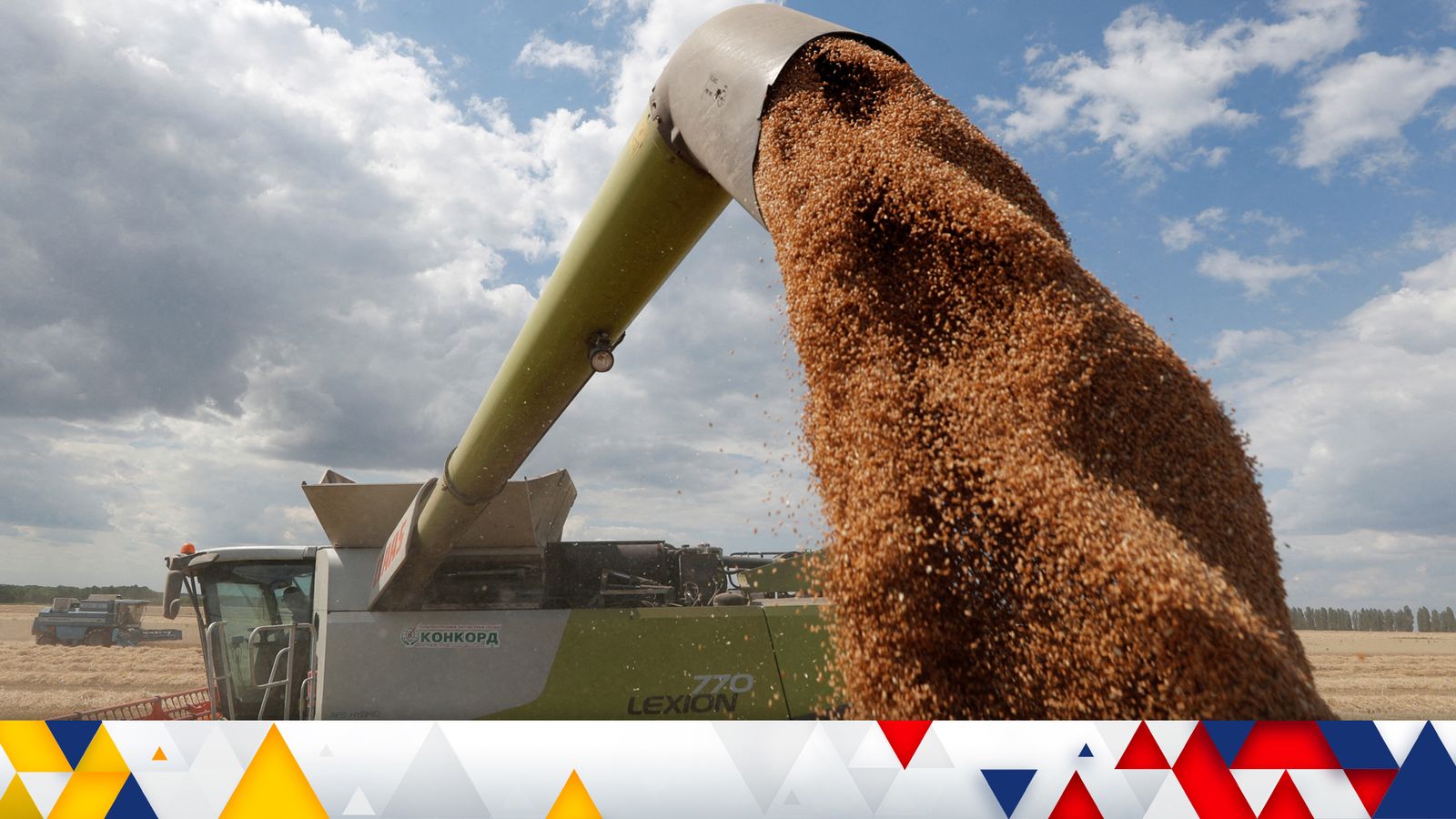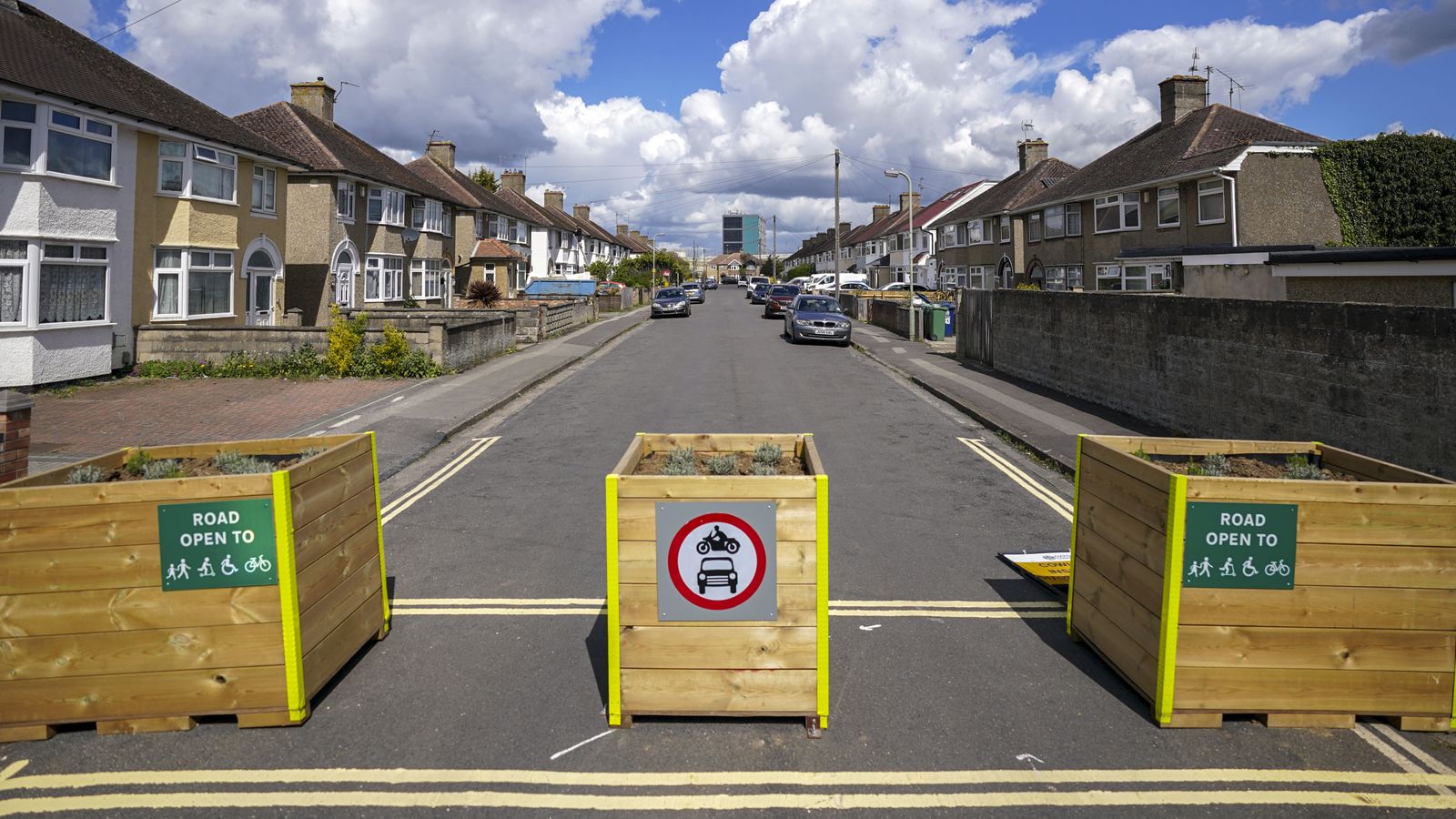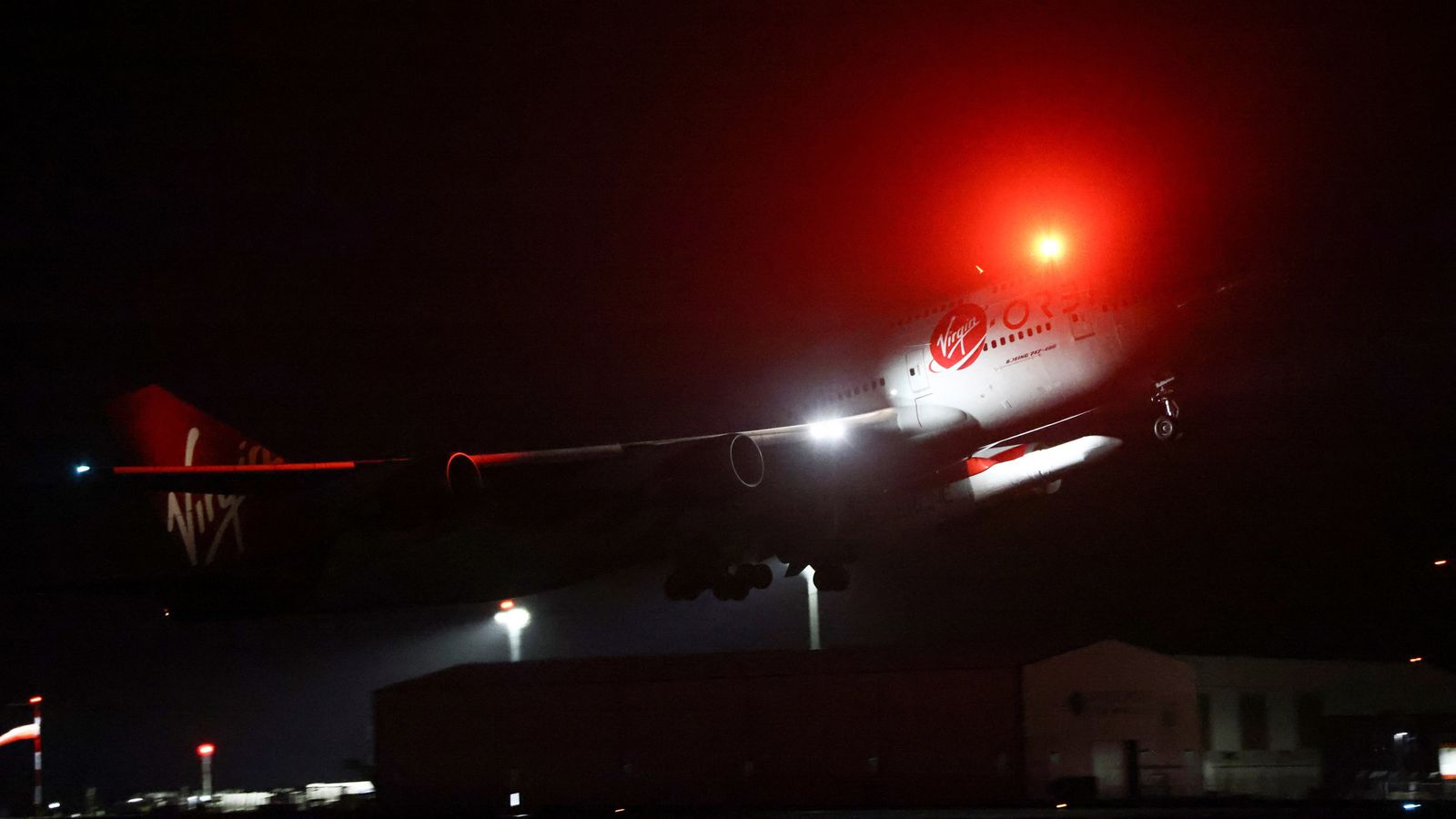There are growing fears that the war in Ukraine could result in the destabilisation of other countries, particularly in central Asia, the Middle East, and Africa.
Ukraine and Russia are big players in world food production, representing 53% of global trade in sunflower oil and seeds, and 27% in wheat, according to the United Nations.
But the Russian invasion of Ukraine has put these exports at risk, causing particular concern for developing countries – some 25 African countries import more than a third of their wheat from Ukraine and Russia, for example.
Speaking to Sky’s Ian King Live programme, Nic Hailey, executive director of charity International Alert, said: “Even before Ukraine, we were talking about unprecedented level of humanitarian need – one person in 95 displaced by conflict or emergency.
“Climate change has led to drought – east Africa for example has had three failed rainy seasons, there are more than seven million people in Somalia who urgently need food help, that’s even before Ukraine.
“And then with Ukraine, the price of wheat, the price of cooking oil, the price of transporting those things has really rocketed and that has just made the situation that much worse.”
Mr Hailey, who previously worked for the Foreign and Commonwealth Development Office, said Egypt – the world’s biggest importers of Russian and Ukrainian wheat; Lebanon – which relies on it for 80% of its food security; and Tunisia, where bread and basic staples are already in short supply, are among the most vulnerable.
Energy security strategy: Boris Johnson pledges to ‘do more’ on cost of living crisis as he defends energy strategy
What is in the government’s energy security strategy?
The Energy Security Strategy has something in it to disappoint everyone
Please use Chrome browser for a more accessible video player
“Sudan is another example – we’ve seen protests over the price of bread lead to serious political violence in Sudan in the past.
“These are the basic things people rely on, so we need to watch those risks of political instability, as well as those impacts on food insecurity and cost of living.”
Mr Hailey said that, because the government is sticking to its promise to spend just 0.5% of GDP on international aid, the increase in aid needed by Ukraine is meaning less for other countries, such as Yemen, where tens of millions of people urgently need food.
He said: “If you look at what the British government is doing, they’ve really stepped up on Ukraine – they’ve mobilised a huge amount of aid money, but that aid money is coming at a cost of work elsewhere.
“Because the 0.5% cap on aid spending which the government is holding to means they’re re-prioritising, they’re effectively taking money away from some of these other crises in order to work in Ukraine.”
He added: “That’s not what the British public has done.
“The British public has responded in an unprecedented way to this crisis, with more than £200m in donations to the Ukraine emergency appeal.
“So what we’re calling on is for the British government and other governments to respond in the same way.
“This is an unprecedented global crisis and governments really need to step up.”
Subscribe to the Ukraine War Diaries on Apple Podcasts, Google Podcasts, Spotify and Spreaker
Mr Hailey also pinpointed some of the former Soviet states, and Ukraine’s neighbour Moldova as being at risk from the conflict.
The economies of several central Asian countries – commonly referred to as “the Stans” – rely on migrant workers going to Russia and sending their earnings home.
But the Russian economy was already hit by the coronavirus pandemic and, with sanctions exacerbating the damage, many of these workers were returning home “jobless and hungry”.
“That is a serious hit – it’s also a serious risk for stability in some of these countries,” he said.
Moldova, the poorest of the European countries receiving Ukrainian refugees, is also at risk, Mr Hailey said, adding that it has conflict within its own borders.
If the Ukrainian city of Odesa – just over the border from Moldova – was over-run and people fled, it could “put a real strain on Moldova”.








